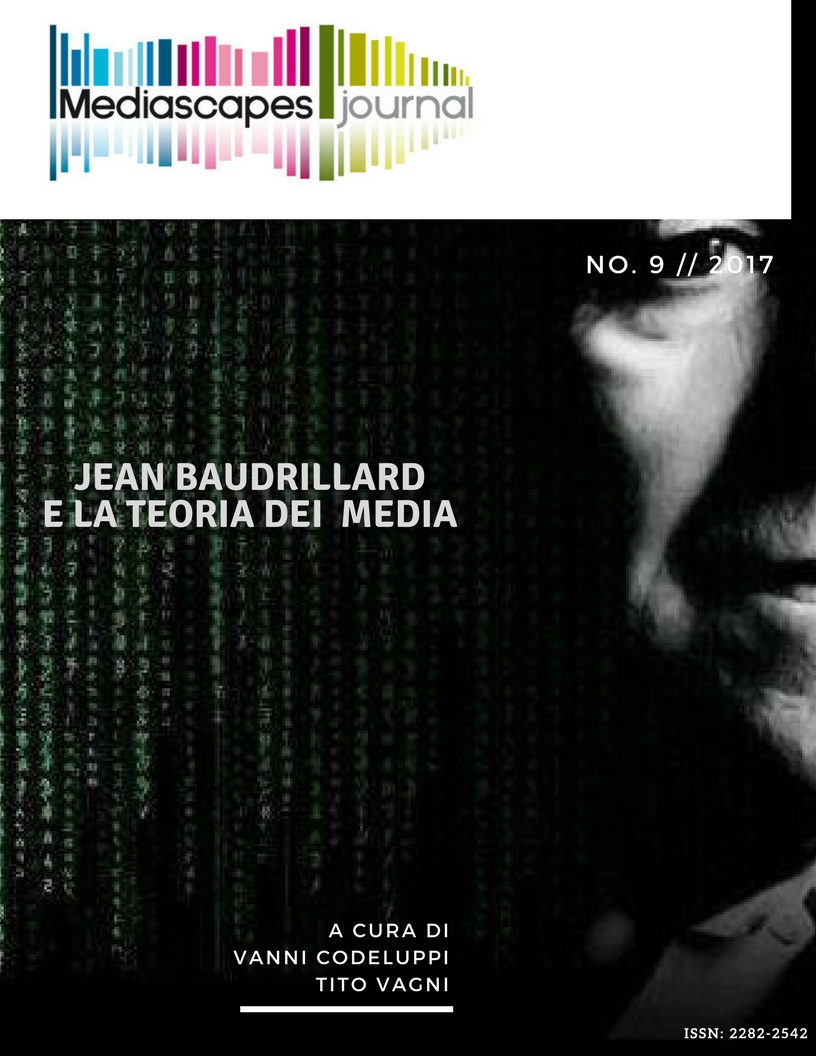Matrici e nostalgie. Baudrillard e il nostro mondo infondato
Keywords:
matrice, simulacro, corpo, comunità, contingenzaAbstract
Jean Baudrillard's legacy can be captured by interweaving one of his most important books - Symbolic Exchange and Death - and one of the science fiction texts - Matrix - that in the turn of millennium has even used a Baudrillard's book as a narrative object. From this weaving, made by some of his thesis and some this film scenes, it is possible to disentangle three threads. First, that of the pervasiveness of the third order of simulacra, of the pure play of signs. A game that was really made "pure" only by the power of the number, by the digitization of information. A game, that of simulacra, oriented but hides an irreducible opening. Second, the thread of body construction as a carnage of signs, moving between the glorious body, linked to functional models to the constitution of human, and the body of the challenge that breaks borders, questions the production of under-human (of ex-communicated) and opens a post-human horizon. A body - that primitive, that baroque, and that of the cyborg - that challenges the reassuring partitions of modernity, starting with separations with the animal and with the corpse, and in this way opens an exchange model that can rebuild community. Third, a line that allows to identify the counterfield from which and thanks to which Baudrillard started to explore the world of simulation. To grasp the importance of graffiti as a manifestation of a new tribalism reveals, on the one hand, the ability to understand the contemporary semiosphere but, on the other, a nostalgia of the lost continuity. The fascination for the primitive, for the original body of the primitive, reveals a certain residue of platonism, some faith in an insidious original. Ultimately, proceeding with Baudrillard means taking charge of the contingency of the world of simulation; to face an unlimited but unfounded power; to fight for a catastrophe of simulacra, realized by themselves.


